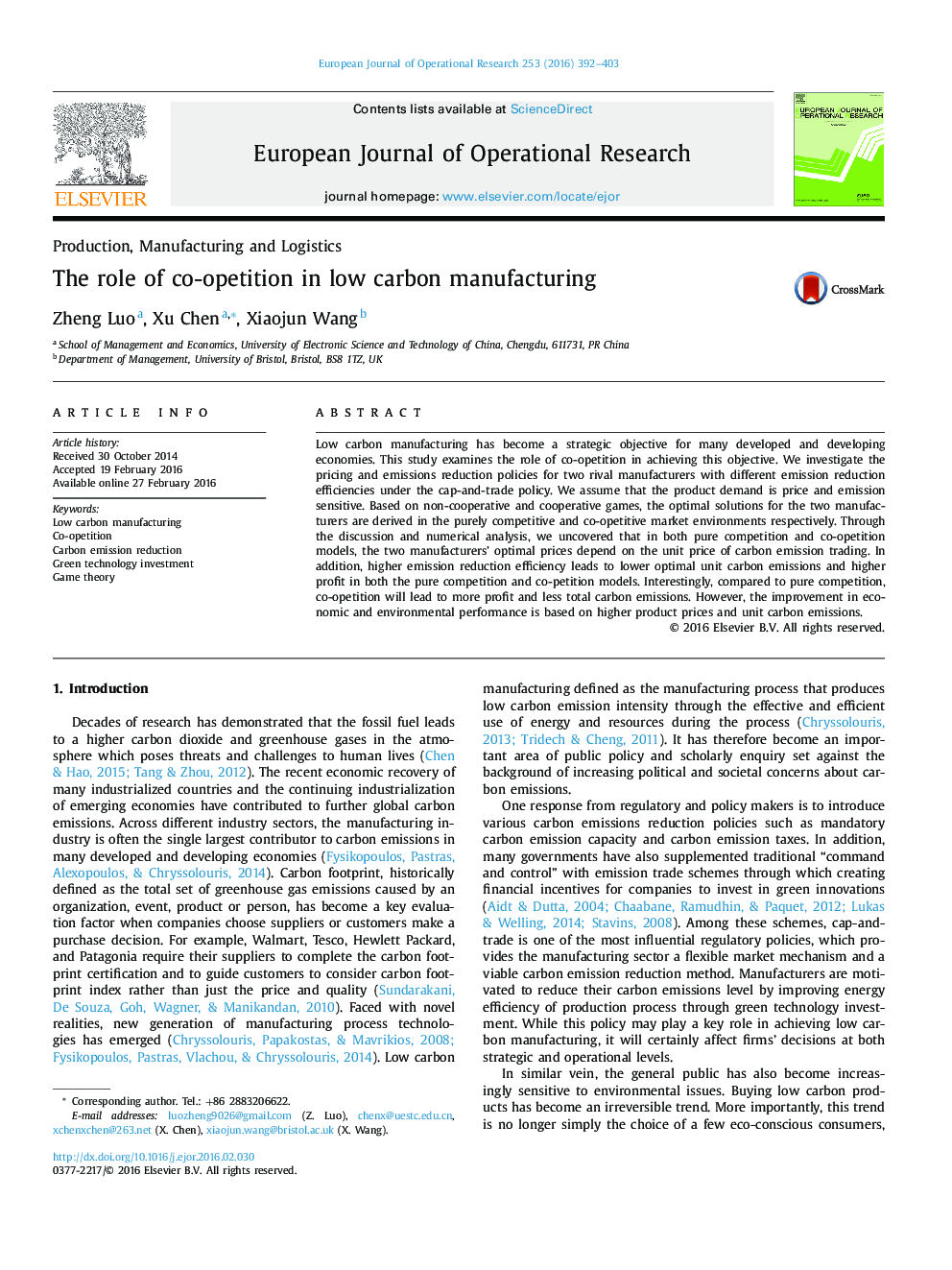| Article ID | Journal | Published Year | Pages | File Type |
|---|---|---|---|---|
| 479252 | European Journal of Operational Research | 2016 | 12 Pages |
•This study examines the role of co-opetition in low carbon manufacturing.•We assume that the product demand is price and emissions sensitive.•Non-cooperative and cooperative game theories are adopted to gain optimal solutions.•Co-opetition leads to more profit and less carbon emissions based on higher product prices and increased unit carbon emissions.
Low carbon manufacturing has become a strategic objective for many developed and developing economies. This study examines the role of co-opetition in achieving this objective. We investigate the pricing and emissions reduction policies for two rival manufacturers with different emission reduction efficiencies under the cap-and-trade policy. We assume that the product demand is price and emission sensitive. Based on non-cooperative and cooperative games, the optimal solutions for the two manufacturers are derived in the purely competitive and co-opetitive market environments respectively. Through the discussion and numerical analysis, we uncovered that in both pure competition and co-opetition models, the two manufacturers’ optimal prices depend on the unit price of carbon emission trading. In addition, higher emission reduction efficiency leads to lower optimal unit carbon emissions and higher profit in both the pure competition and co-petition models. Interestingly, compared to pure competition, co-opetition will lead to more profit and less total carbon emissions. However, the improvement in economic and environmental performance is based on higher product prices and unit carbon emissions.
